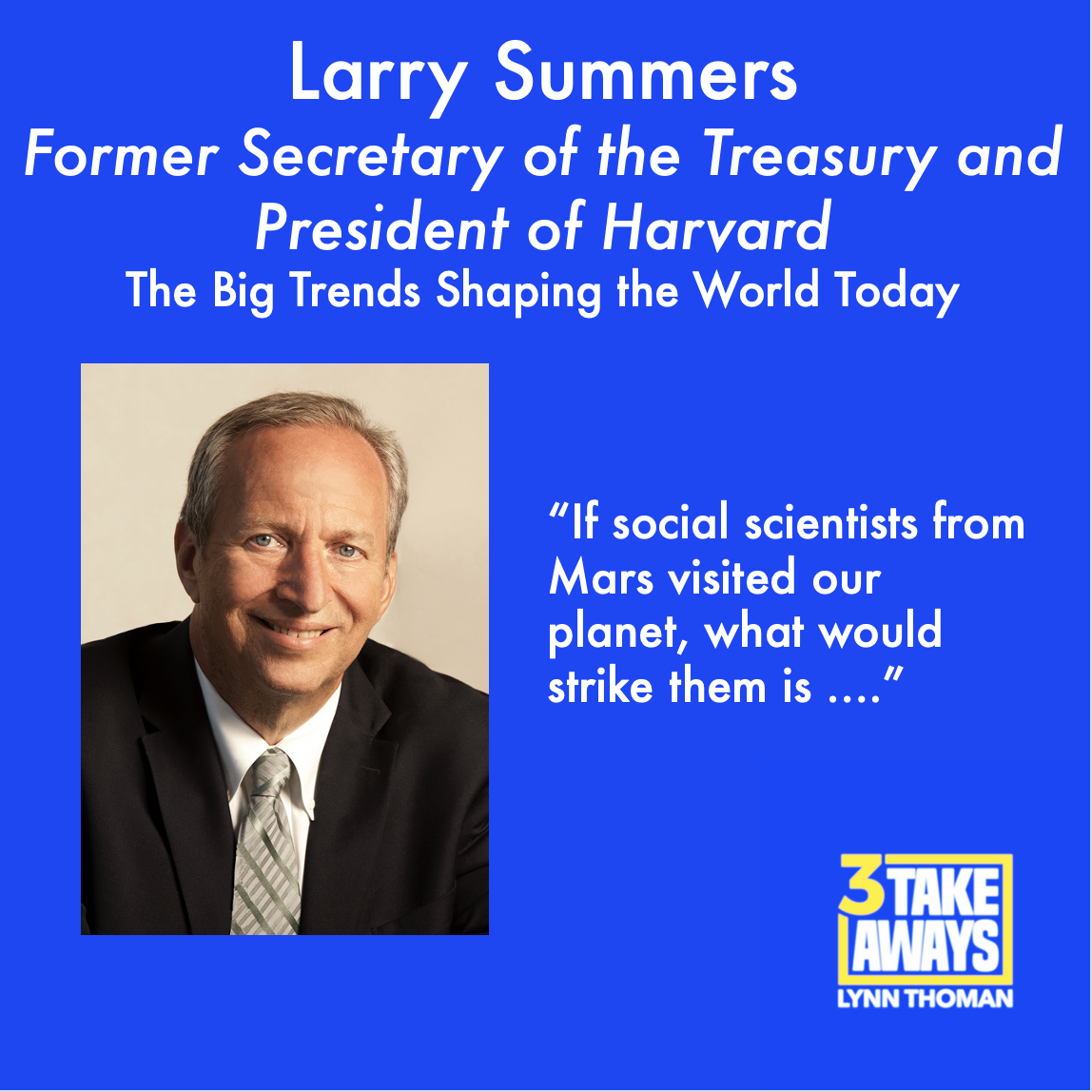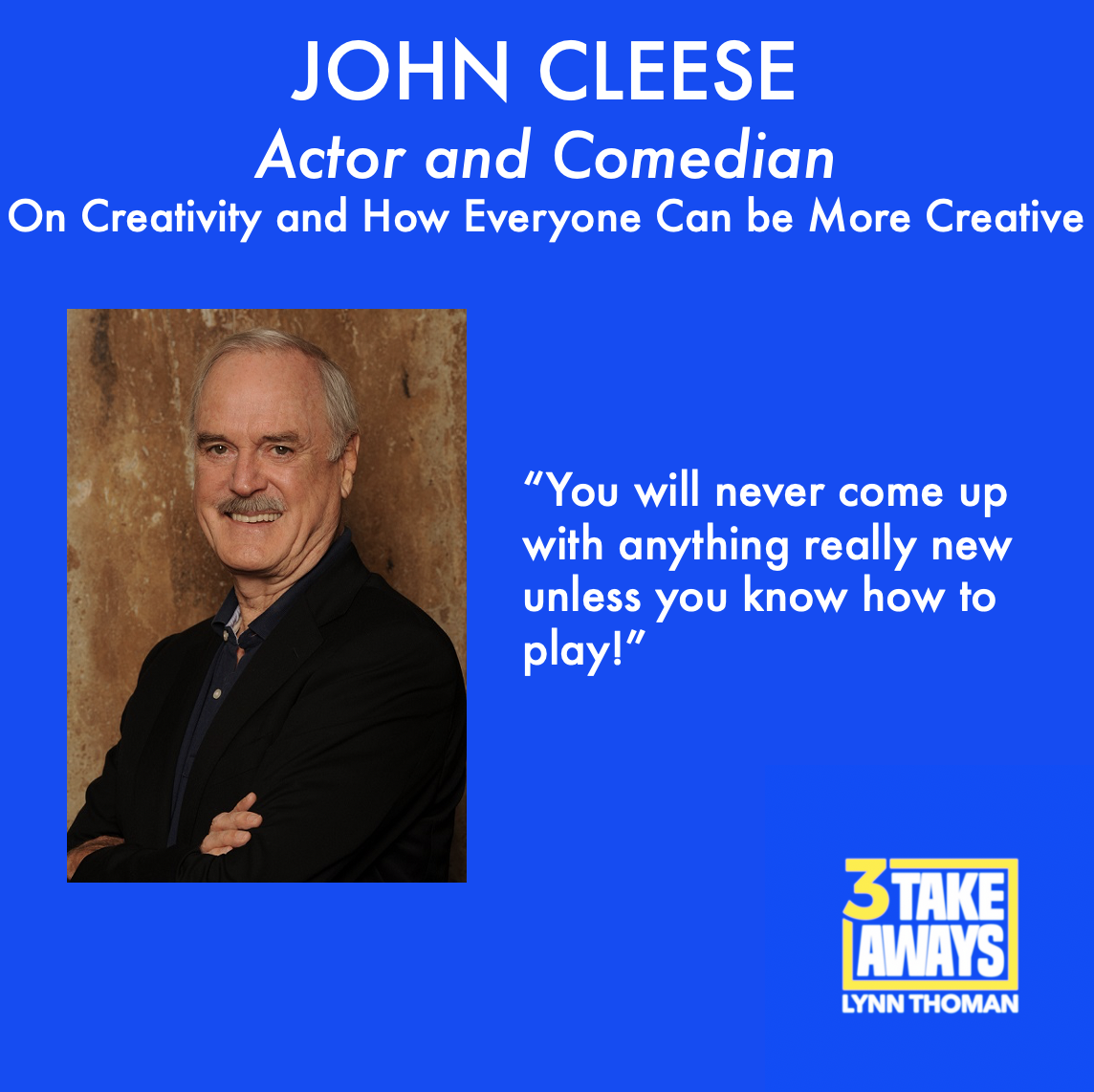
Former Secretary of the Treasury and President of Harvard, Larry Summers: The Big Trends Shaping the World Today
Former Secretary of the Treasury and President of Harvard Larry Summers talks about the defining trends of the 21st century, including how we are going to achieve collective solutions, the shift in the center of gravity of the world’s economy and culture to the east, the upcoming transformation in education, the hard choices facing the leading universities, and the exponential growth in what information technology will be capable of.

Nobel Laureate, Daniel Kahneman: His Latest Findings on "Noise" and Flaws in Human Judgement
Learn about Nobel Laureate Daniel Kahneman’s latest findings on “noise” and how there is more noise and flaws in human judgement than you think — Find out why you should see a doctor in the morning and go to court after lunch.

Tom Friedman: On the World Getting Flatter and More Fragile, and Elephants Flying
Tom Friedman, author, New York Times columnist, and winner of three Pulitzer Prizes, talks about the world getting flatter and more fragile; abolishing recessions and interrupting the natural laws of capitalism; why the U.S. needs a healthy Republican Party; and how the world AC (After Corona) will be very different from the world BC (Before Corona).

How Right and Wrong Change with Technology with Juan Enriquez
We all think we know what’s right and wrong but we don’t because right/wrong changes over time. Our great grandchildren might be shocked by people eating meat, and the risks of pregnancy, childbirth and unedited genes. Find out which things we're doing now that will be viewed as wrong, and learn about the almost inconceivable things that will become “right" because of new technology. Will genetic engineering of humans for space travel become acceptable? Bigger brains? More compact bodies? Different species of humans to increase our odds of survival?

Princeton Psychology Professor, Eldar Shafir: Why Having Too Little Makes People Perform Worse and Become More Impatient, Impulsive and Careless
Learn how scarcity of anything — money, food or social connections — affects our daily lives and leads us astray. Scarcity reduces both intelligence and control. Having too little preoccupies and taxes the mind, making life much harder. "Even smiling and being pleasant is hard when your mind is taxed. The employee snaps at rude customers ... The parent snaps at the child ... The server rings up the wrong item.” Learn about the latest cutting edge behavioral science to find out how the poor can escape the scarcity trap and how we can all manage scarcity for better satisfaction and success.

Harvard’s Chair of Astronomy, Avi Loeb: Why We Are Not Alone and Are Very Common Like Ants On A Sidewalk
Find out why Harvard’s Chair of Astronomy Avi Loeb says we are not alone in the universe and that there are more intelligent and sophisticated civilizations than ours. Learn about the evidence that we aren't the “smartest cookie in the jar.” Find out when we were visited by another civilization and how we can create life on other planets by launching what he calls "Noah's spaceship.”

Harvard Professor, Robert Waldinger: On What the Good Life Actually Looks Like Based on Harvard’s 75 Year Study
Find out what the good life actually looks like based on Harvard's 75 year study of over 700 men from when they were teenagers through old age, with director of the study, Robert Waldinger. Learn the single most important thing that keeps us healthy and happy as we go through life and predicts who will stay healthy longer and live longer.

John Cleese of Monty Python: On Creativity and How Everyone Can Be More Creative
John Cleese opens up about how he gets his best ideas and how everyone can be more creative. He also provides insights on comedy and humor.

Head of Columbia University’s Creative Machines Lab, Hod Lipson: On the Future of Artificial Intelligence
We are at an inflection point in artificial intelligence today. Find out what the next 3 waves of artificial intelligence will bring — including creativity and consciousness.

President of Pew Research Center, Michael Dimock: On the Attitudes and Trends Shaping America Today
Find out how what America is looking for in a leader has changed. In addition, not only are there doubts about the mechanics and logistics of the U.S. election, but also the American public is going into it with deeper doubts about the qualifications of the voters in the first place. Learn how Americans’ attitudes are shaping the country.

Yale Professor, Amy Chua: On How Group Identity and a Failure to Realize Its Importance Has Caused the Rise of Partisanship and the Failure of U.S. Foreign Policy
Find out how group identity has caused bitter partisanship in the U.S. and the failure of U.S. policies in Vietnam and other countries, from an original thinker who has received support from across the political spectrum. Learn how children as young as 4 years old identify with groups and consistently display systematic, unconscious bias toward other groups. Learn how America can move forward.

Former Google CEO, Eric Schmidt: On AI, Tech, COVID-19, and Making the World A Better Place
Find out how former Google CEO Eric Schmidt sees the future of artificial intelligence (AI) and tech. As leader of NY Governor Cuomo's COVID-19 task force, he’ll also provide insights on the world post-COVID, as well as the opportunities and talent that he is investing in through Schmidt Futures and his new podcast Reimagine.

Founder of the Innocence Project, Barry Scheck: Why People Are Wrongfully Convicted
This week on 3 Takeaways, founder of the Innocence Project Barry Scheck, answers all questions related to wrongful convictions. Barry Scheck has freed hundreds of wrongfully convicted people from jail, many of whom spent decades in jail for crimes they didn’t commit.
